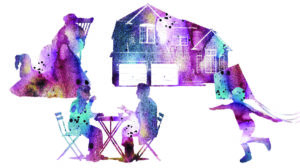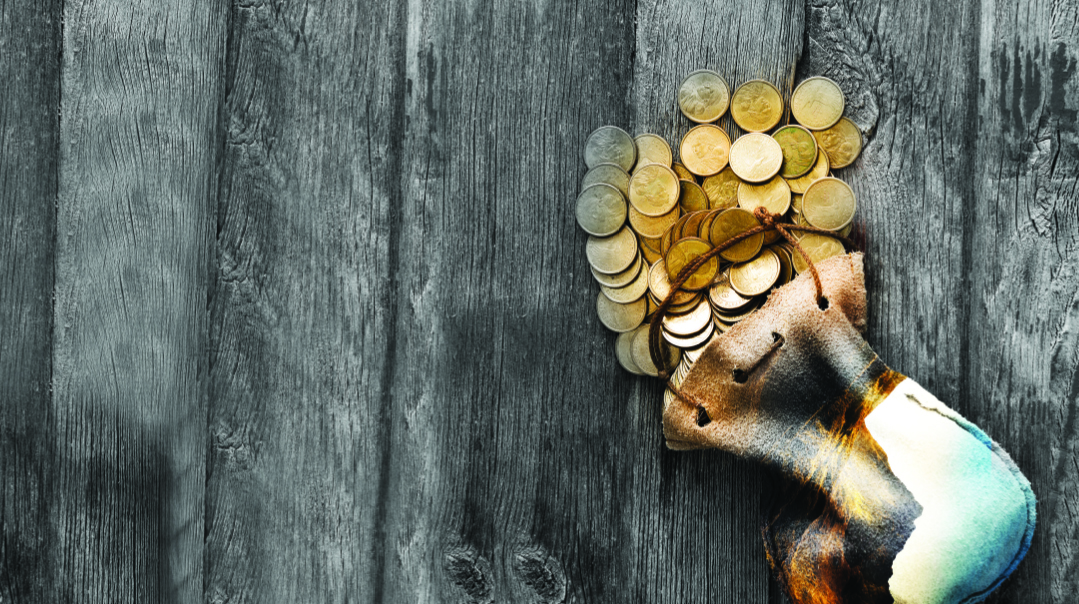A Federal Case
| September 28, 2016“Why do you think you lost?” one reporter asked. “Because the judge was on the boys’ side”

If your parents were anything like mine, they probably told you, at some point, not to “make a federal case” out of something. But back when I was ten, making a federal case was exactly what I did.
As a ten-year-old gung ho athlete, I wanted to play baseball. Not just backyard, sandlot pickup games — real baseball games. To do that, I decided to join Little League. But in those years of busing and civil rights and desegregation, Little League was strictly all male. Girls were welcome at games, of course, but as family and fans only. Undaunted, two friends and I showed up early one Saturday morning, money and registration forms in hand. We were told that not only could we not play, we couldn’t even register, as we were (obviously) girls.
I arrived home fuming. “Sue them!”
My parents did just that.
In a case that landed me on the front page of the Boston Globe for weeks (and more embarrassingly, on the bulletin board of my fifth-grade classroom), and made me and several other like-minded girls around the nation the talk of the radio talk shows, we took Little League to federal court.
And lost.
After Judge W. Arthur Garrity (of Boston desegregation and busing fame) handed down the verdict, I was interviewed outside the courtroom.
“Why do you think you lost?” one reporter asked.
“Because the judge was on the boys’ side,” I answered, in my black-and-white understanding of the world’s rights and wrongs. What other reason could there possibly be?
So I played in a girls’ softball league, a hastily assembled consolation prize with the non-PC name of GALS (Girls American League for Softball). I played softball in junior high and high school. I played in pickup games. And 12 years after I made a federal case about it, I showed up at Neve Yerushalayim, almost on a dare.
Although I’d been keeping the basics of Shabbos and kashrus for two years, I had yet to crack open a sefer of any kind. But emotional fuel only keeps you running for so long; it was time to hit the books and get myself a Jewish education.
I loved most everything about Neve, but I did not love the dress code, which required students to wear skirts, anathema to a girl who’d had to buy a dress for her high school graduation because she didn’t own one. My blue jeans were blacklisted. I wore them anyway.
For the first year, no one said a word. By the second year, I’d become the longest holdout in Neve history, according to their seasoned secretary. I wasn’t trying to be obstinate or set records. I was just being the same me who never did or didn’t do anything just because everyone else was or wasn’t.
“Peer pressure will take care of it,” one rabbi told my madrichah.
She was amused. “Do you know Cindy at all?!”
“How can you be so makpid on everything else and still wear pants?” another teacher asked. She wasn’t attacking; she really didn’t understand.
“Every baal teshuvah has their sticking point, something that’s hard for them,” I said. “Mine just happens to be very noticeable. If my weakness were cheeseburgers, no one would know.”
It took longer than anyone expected, but eventually, inevitably, two years after I’d entered Neve, the dress (skirt) code became part of my life, at school at least. End of successful baal teshuvah tale? Not quite.
Softball. I was still playing softball. Coed games. In pants. On Shabbos. Yes, I walked there and back, from Bayit Vegan to Ramat Eshkol, over an hour each way in the Middle Eastern sunshine. The even crazier part was that I had a heter of sorts to play on Shabbos. My madrichah, knowing I felt guilty and torn about this, pushed me to ask a sh’eilah. (Only later did I find out she’d tipped off the rabbi first.)
“Oh, sure,” I said, “he’s going to tell me to play on Shabbos.” But I was too conflicted to keep on the way I was going. So I made an appointment, knowing I’d have to stop playing on Shabbos if he told me to.
He didn’t. The very British rav grilled me about the game — the surface, how I got there, how it was played, what equipment was used — and then told me, “You’re not breaking Shabbos. It’s certainly not in keeping with the spirit of Shabbos, but it won’t be good for you if I force you to give it up right now. You’ll get there on your own.” And I did — my madrichah gave me a copy of Hilchos Shabbos in honor of the occasion.
But… there were still games during the week. I refused to play in a skirt. I would not. I could not. Would anyone expect a ballerina to dance with ankle weights? I also couldn’t stop playing. I was happiest on a sports field, no matter what kind. I’d stay there all day, every day if I could. Sports were just short of oxygen and water. But the contradiction was weighing me down, and crunch time was coming up fast.
One afternoon, full of trepidation, but needing to do the right thing, I headed to the house of Rav Chaim Pinchas Scheinberg to ask him my sh’eilah: Could I continue playing softball, in pants, and with boys?
On the sun-filled porch of his home, the tzitzis-bedecked Rav offered me a candy from a dish, and his wife brought me a glass of iced tea. But I wasn’t able to eat or drink. If a sh’eilah could put my life on the line, this one was it.
He’d been a good pitcher when he was younger, Rav Scheinberg told me. I guess he was showing me that he could relate, that he knew what I was talking about, that he had his own past in sports, long left behind. And then—
“I’m sorry,” he said, and he sounded it, “but there’s no heter to play in pants or with boys.”
Back in the apartment I shared with a friend, I charged into my room, pulled out my mitt, and in near hysterics hurled it into her room, yelling, “Get this out of my sight! I never want to see it again!”
My oxygen supply had been cut off, a part of me had died — and I was the one who’d made it happen. I felt like I was mourning myself.
In time, the pain faded somewhat. I reclaimed the mitt, and even considered having it bronzed as a sentimental memento, like baby shoes.
That acceptance was only in my waking hours, though, because awake I could rationalize. I could reason with myself. I could be intellect versus emotions, spiritual versus physical, head versus heart.
Asleep, it was a different matter.
For years after going to Rav Scheinberg I had a recurring dream: There was a ball game about to take place and I was always late, or had forgotten my glove, or missed the bus, or they were playing some weird game with weird rules… and I’d wake up. In all those years, I never made it to a game. And I always awoke in tears of regret, because the dream had ended before the game could start — and my nightmare was still going on.
Then, years later, a friend showed me an ad for a women’s-only sports league, and I showed up in a skirt, long sleeves, and by this time, with my hair covered. Playing in a skirt no longer seemed like the end of the world. And no, I answered my horrified neighbor, I didn’t have anything better to do three days before Pesach.
We don’t always find a substitute; sometimes we give something up for all the right reasons, and it’s not restored or replaced. It’s just gone. But my softball games were replaced with a women’s league, and since that first night — three days before Pesach, 12 years ago — no more nightmares.
Boston’s Federal Court was small potatoes. Even at ten years old, I didn’t trust in that higher authority to have the objectivity, the impartiality, or my best interests at heart to make decisions that affected me.
L’havdil, the Highest Authority knows exactly what I need and when I need it.
I rest my case.
(Originally featured in Family First, Issue 511)
Oops! We could not locate your form.













